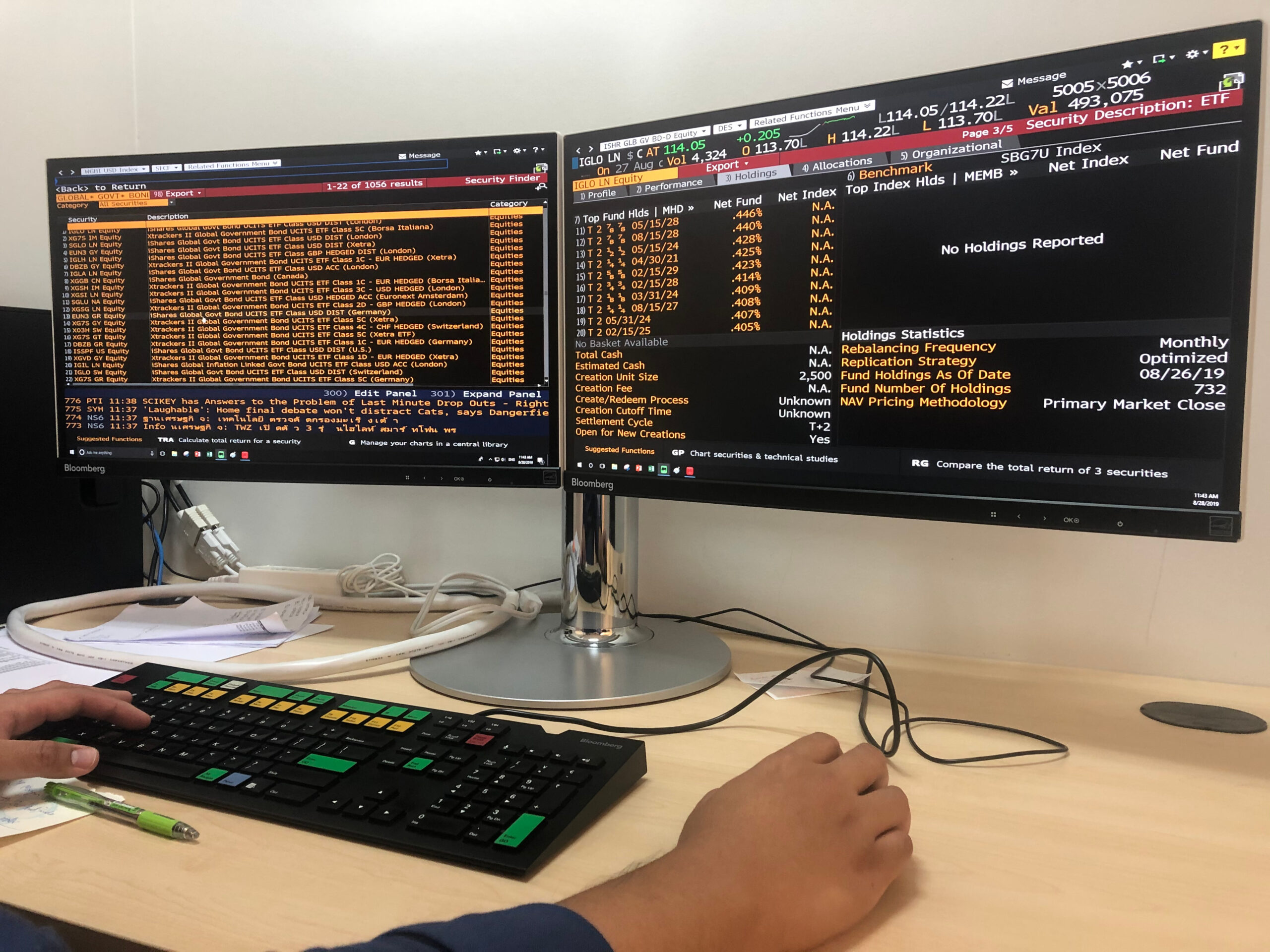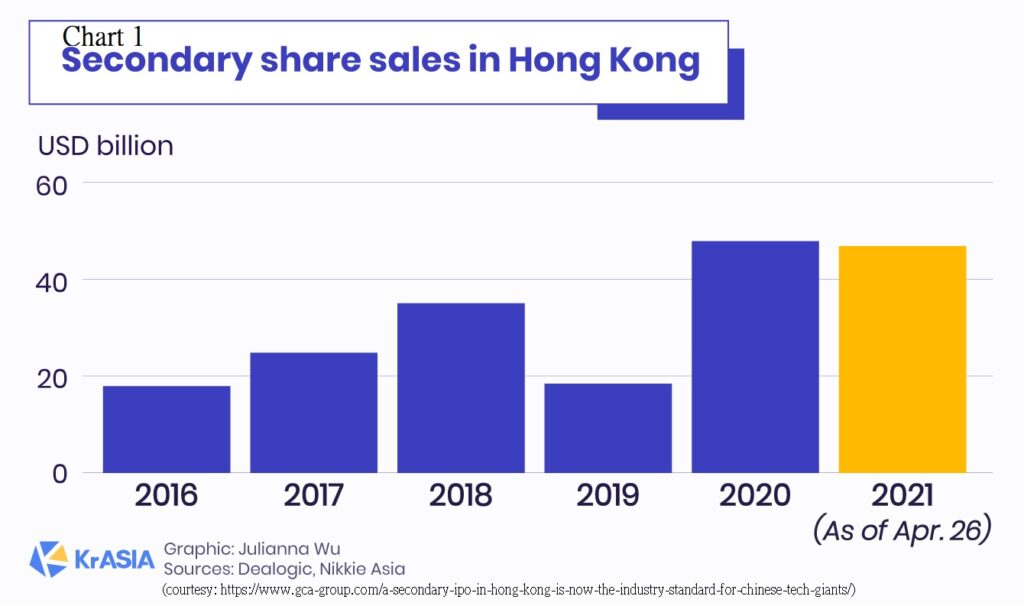In recent years, tense Sino-U.S. relation and tightening accounting & company rules in the U.S. has led U.S.-listed Chinese firms to retreat in H.K. stock market. The Holding Foreign Companies Accountable Act passed last year in May by the U.S. Government further empowers U.S. regulators to inspect U.S.-listed Chinese companies and ban the trading of securities of suspected listed companies if necessary. This enhanced enforcement conflicts with cross-border securities supervision generally conducted by the China Securities Regulatory Commission over listed Chinese companies. The resultant dilemma which arose from the regulatory conflict in two jurisdictions as well as U.S. blacklisting action over suspected Chinese companies has led to a tide of delisting cases in the U.S.
As shown in Chart 1, the Hong Kong stock market would be another viable destination for Chinese companies seeking the access finance from international capital markets. Secondary share offerings in H.K. bourse for 2021 would certainly surpass last year as April this year has already seen leveling up with last year’s whole-year offering amount. However, dual listing in U.S. and H.K. for Chinese companies has important implications for investors as discussed below.
Price fluctuation
According to Hong Kong Exchanges and Clearing Limited, fluctuations in the price of securities would possibly happen because U.S. and H.K. securities markets present unique characteristics in their respective regulations and operations. Investors in dual-listed Chinese companies would bear the risk of price fluctuations.
Arbitrage opportunities
According to Julia Fioretti from Bloomberg, U.S.-listed Chinese firms seeking secondary listings in Hong Kong would facilitate arbitrage trading. Flotations at Hong Kong market would normally be priced at discounts to share prices at U.S. market. This price differential creates arbitrage opportunities for investors through buying the Hong Kong stock at a lower price while shorting the U.S. stock. However, such arbitrage opportunities are required to be grasped in sophisticated manner because price discounts between different listings are tight as evidenced by averaging at 2.67% for the latest seven listings in Hong Kong market after U.S.-traded Alibaba stock has landed their homecoming listing in Hong Kong since November 2020.
Tax obligations in different jurisdictions
Investors may incur foreign tax reporting and payment obligations through holding the shares of an overseas company. If withholding tax on distributable entitlements or any other tax is payable, U.S.-listed Chinese company must disclose in its listing documents details about whether Hong Kong investors have any tax reporting obligations. Ongoing disclosure of such information in Company Information Sheet after listing in Hong Kong is also required by H.K. law.
Regulatory risk to investors
The risk of investing in an overseas listed company deviates from that of a Hong Kong listed company. Different jurisdictions present different degree of regulatory oversight, disclosure and transparency for the safeguards of investors. Hong Kong and the United States operate on a different set of corporate laws governing issues including organization structure, governing bodies, share transfers and shareholders’ rights. Investors in an overseas listed company would encounter difficulty to enforce their shareholder rights because of cross-border access to legal services & court assistance and the incremental costs related to those services. Such regulatory issues arisen from geographical difference are not negligible.
Capitalizing on the advantages of H.K. stock market
The Hong Kong stock market is the largest bourse in Asia facilitating a consistently high volume of trading. With proximity to China, the H.K. stock market allows listed companies access to mainland China’s investors which could not be accessed to through listings in other Asian markets. Secondary listing in H.K. market further explores the world of China’s high net worth wealthy. Unique geopolitical position of Hong Kong implies that secondary listing here for U.S.-listed Chinese companies can serve as a hedge against rising geopolitical tension.
Recently revised H.K.’s Listing Rules attract biotech industry players and allow listing of innovative or high-growth companies which have structures of weighted voting rights or offer ‘dual-class shares’. According to William Chua from Debevoise & Plimpton, such changes in Listing Rules favor homecoming listings and narrow the differences in the governance regimes of the U.S. and H.K. If a U.S.-listed Chinese firm chooses to seek a secondary listing in H.K., it can also seek extensive Listing Rule waivers for not conforming to the entire Hong Kong’s Listing Rules.
Diversifying and widening H.K. market
Secondary listings of new economy companies in H.K. help diversify the Hong Kong stock market. High-profile listings including Alibaba, JD.com and NetEase help build up new segmentation of fintech and biotech companies in the H.K. stock market. In the long run, a new segment is beneficial to the health of overall H.K. market and international investors participating in H.K. market.





